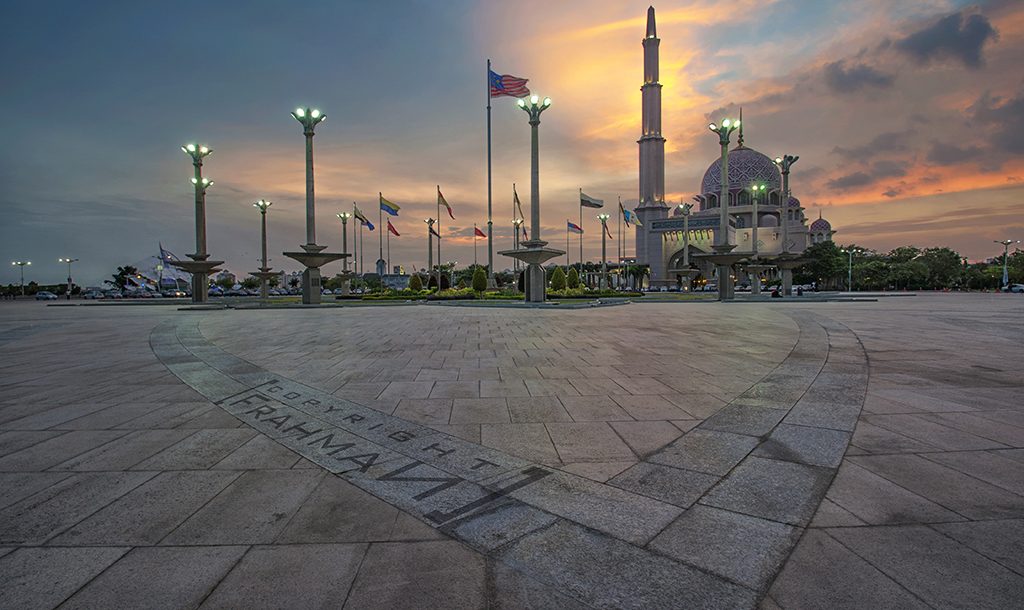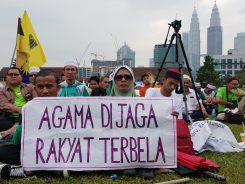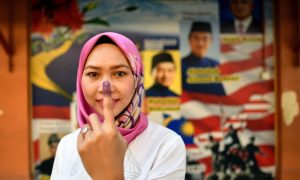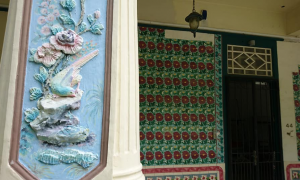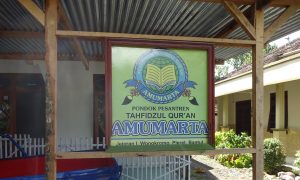Prior to the dramatic fall of the Pakatan Harapan (PH) government in February, anti-PH agents had been taking to social media platforms in Malaysia to popularise perceptions that ‘Islam is under threat’ and ‘Malays are being side-lined’. Fears that such threats are real are being used to justify the establishment of a ‘Malay-led government without DAP’. The Democratic Action Party (DAP) is a Chinese-majority multi-ethnic party that is now the biggest party in the PH coalition.
Groups using social media to mobilise public opinion include political parties, especially the Malaysian Islamic Party (PAS), the United Malays National Organisation (UMNO) and some factions in the Malaysian United Indigenous Party (Bersatu, a Malay nationalist party). Also active are Muslim NGOs, pressure groups and preachers.
After PH came into power, some leaders enthusiastically promoted the notion of a more equal and inclusive ‘New Malaysia’. To undermine the making of such a ‘New Malaysia’, anti-PH agents have been manufacturing notions of ‘Malay/Muslim insecurity’. The allegations deployed by these anti-PH politicians and activists are: ‘The Chinese control the economy, now they want to take political power too’, ‘We Muslims are the majority, but we are now being led by minority non-Muslims’ and ‘the Chinese are united under DAP, but Malays are split into many groups’. They have capitalised on issues ranging from recognition of the United Examination Certificate (UEC, a standardised test used by the independent Chinese high school sector in Malaysia) to the ratification of the International Convention on the Elimination of All Forms of Racial Discrimination (ICERD). Calls for ‘Muslim unity’ are prevailing, and go hand on hand with an increase in the politics of othering against certain ethnic, religious and sexual minorities.
I have argued elsewhere that PH’s GE14 electoral success was not due to the total decline of racialised and Islamic politics in Malaysia. Rather, the coalition managed to attract voters from across the political spectrum, including moderate Islamists and Malay nationalists. While most Malay Muslims are neither outright racists nor narrow Islamists, many do desire ‘Malay leadership’ and do not endorse a total separation between religion and politics. Anti-PH agents have been playing up these issues to diminish PH’s Malay support. Together with political infighting, the inability of the PH government to contain these contentious issues partly led to its collapse.
Comparing ‘anti-DAP’ and ‘anti-Ahok’
The ‘anti-DAP’ campaign in Malaysia shares some similarities with the ‘anti-Ahok’ campaign against former Jakarta governor Basuki Tjahaja Purnama in Indonesia a few years ago. In both movements, politicians, activists, preachers, buzzers and cybertroopers used social media to manufacture ‘Muslim insecurity’ and to cultivate a ‘siege mentality’ among Muslims that Islam is under the threat (in Malaysia, cybertrooper refers to people paid to disseminate political propaganda on social media platforms; buzzers play a similar role in Indonesia). The manufacturing of such an emergency has justified calls for ‘kesatuan Melayu’ (Malay Unity) and ‘perpaduan ummah’ (Muslim Unity) in order to ‘defend Islam’. Terms such as ‘Malay’, ‘Muslim’ and ‘Bumiputra/ Pribumi’ are used interchangeably, even though they have different connotations.
While DAP and Ahok are their respective rallying points to mobilise crowds, both movements have a broader political agenda. Their ultimate aims are to weaken and, if possible, to take over the PH government and the Jokowi government respectively. They often claim that they are not ‘anti-Chinese’ and only ‘anti-Ahok’ or ‘anti-DAP’. Yet their spreading of ‘hate speech’, whether directly or subtly, has intensified racialised and even racist discourses in both countries.
Both the anti-DAP and anti-Ahok movement have similar modus operandi. Actors in both movements run multiple accounts and fan pages across various social media platforms to influence Muslim public opinion. They are skilled in manipulating facts, shaping discourse and creating a perception that they represent the ‘voices of a majority of Muslims’. The effect in both Malaysia and Indonesia has been to force the PH and Jokowi governments to take relatively conservative stances in order to appease them.
Though both movements use Islamic idioms to mobilise support, not all people behind them share the same Islamic agenda. As such they are less about growing religious extremism or hard-line Islamism than about ‘Muslim majoritarianism’. The fact that Islam is the key rallying theme shows that Islam is playing an increasingly visible and important role in shaping public space and political discourses in both countries. Some participants in the movements are Islamists, some are nationalists. Others are just opportunists. But are all united over the perceived common enemy: Ahok in Indonesia, and the DAP in Malaysia.
There are also socio-economic dimensions to both campaigns, which resulted in ‘Koperasi 212’ (a Muslim cooperative) in Indonesia and a ‘Buy Muslim First’ campaign in Malaysia. Some segments of the Muslim middle-class and business communities believe that they should unite to face competition from their non-Muslim counterparts, while some Muslims from lower-class backgrounds think they are not benefitting from the Jokowi and PH government’s policies.
Manufacturing perceptions, mobilising sentiments
Besides politicians linked to UMNO, PAS and some factions in Bersatu, many activists and preachers have been popularising perceptions of Malay insecurity and Islam being under threat. In fact, most politicians do not directly or openly promote such perceptions themselves, but let activists, preachers and cybertroopers to do the job for them. In my research, I have been observing the role of two groups: first, ISMA (Ikatan Muslimin Malaysia) and second, Perlis Mufti Dr Mohd Asri Zainul Abidin (Dr Maza) and his allies. Both have the potential to sway pious urban middle-class Muslims away from supporting PH. In this article, I pay special attention on the role of ISMA.
ISMA is small right-wing Islamist NGO which has been strategic in using social media to hijack Malay public opinion. It has been a long-term rival of IKRAM (Pertubuhan IKRAM Malaysia, formerly JIM or Jemaah Islam Malaysia) in Islamic politics in Malaysia. Both groups are influenced by the Muslim Brotherhood. Their members are mostly educated, urban Muslim middle class professionals. Yet unlike IKRAM, which positions itself as an inclusive and moderate Islamic movement, ISMA is more Malay-centric and exclusivist.
Malay anxiety, exclusion, and national unity
By drawing stricter boundaries between what is ‘Islamic’ and ‘un-Islamic’, and between who is ‘Malay’ and ‘non-Malay’, the anxiety about 'Malay unity' is addressed in a post-May 9 Malaysia.
Although a fringe group, ISMA has been smart in combining online campaigns and offline rallies. It has also worked with political parties and other organisations to manipulate Muslim public opinion. Before GE14, ISMA launched a “Voter Awareness Movement” (Gerakan Pengundi Sedar, or GPS), a campaign that urged Muslims to vote for “credible Muslim candidates” (calon Muslim berwibawa) who uphold the Malay-Muslim agenda. Most of the ‘credible Muslim candidates’ ISMA endorsed were from PAS and none were from PH.
In the aftermath of GE14, Gerakan Pengundi Sedar has become an active Facebook fan page that posts messages almost every day ‘revealing’ incidents which prove that ‘Islam is under threat’. For example, GPS cited the appearance of rainbow flags during the 2019 Women’s Day March in Kuala Lumpur to claim that ‘LGBT groups have become more visible and demanding under the PH administration’. ISMA runs many other online groups, fan pages and individual accounts, as well as an online video channel and a news portal.
Offline, ISMA has run rallies to ‘defend Islam’, leading a coalition of Muslim NGOs called Ummah. A rally was held on 28 July 2018 with the theme of ‘Malaysia Baru Pasca PRU14: Islam Melayu Terancam’ (‘Post-GE14 New Malaysia: Malay Muslims are being threatened’). The key objective was to protest the PH government’s proposed recognition of the United Examination Certificate (UEC), a standardised test used by independent Chinese high schools in Malaysia.
On 8 December 2018, with the endorsement of PAS and UMNO, Ummah organised a much bigger rally. About 60,000 people gathered near Dataran Merdeka in Kuala Lumpur to protest the PH government’s plans to ratify the International Convention on the Elimination of All Forms of Racial Discrimination (ICERD). They claimed that ICERD would undermine the special status of Malays and the role of Islam in Malaysia. ISMA was perhaps the key organisation that brought UMNO and PAS, as well as various Islamist and Malay nationalist groups, together for the rally, consolidating cooperation between PAS and UMNO under the name of ‘Muslim unity’.
In 2019, ISMA launched two controversial campaigns on social media: ‘Buy Muslim First’, and ‘Vote Muslim First’. Amid the debate surrounding the introduction of Jawi lessons into the Bahasa Malaysia syllabus in August 2019, the PPIM (the Muslim Consumer Association of Malaysia) and Ummah launched the ‘Buy Muslim First’ campaign. They alleged that halal businesses in Malaysia are being dominated by non-Muslims, and urged Muslim consumers to prioritise Muslim-owned products and services. The closed Facebook group ‘Buy Muslim First’ now has over 2 million members. For some Muslim activists, Muslims should both lead the government and dominate the business sector.
Beyond Malay unity: cooperation and competition
While PAS, UMNO and ISMA are working together to cultivate anti-PH sentiments among Malay Muslims, they are not necessarily on the same page when it comes to other issues. During the Tanjung Piai by-election held in November 2019, ISMA was dissatisfied because Muafakat Nasional, a pact between PAS and UMNO, nominated a Chinese candidate from MCA (the Malaysian Chinese Association). Though PH fielded a Malay candidate from Bersatu, ISMA alleged that DAP was still controlling PH behind the scenes. Berjasa, a political party linked to ISMA, fielded its own candidate and ran an election campaign under the tagline of ‘Vote Muslim First’.
Muafakat Nasional’s Malaysian Chinese Association candidate won the seat handsomely, while Berjasa lost its deposit. Perhaps this by-election result (in an electorate with a slight Malay majority) hints at sentiments common among Malay Muslims. While some have been directed to believe that DAP is dominating PH and are influenced by the perception of ‘a government led by non-Muslims’, they reject ultra-exclusivist parties such as Berjasa. Instead, they endorse a kind of power sharing that appreciates multi-ethnic coexistence while at the same time upholding a place for Malay Muslims at the centre of power. While ISMA is unlikely to achieve any electoral success, it remains as an influential Islamist pressure group.
The defeat of Bersatu in the by-election also triggered a split within the party. Some of its leaders thought the party should exit its coalition with DAP, an argument that partly led to the collapse of the PH government. The faction led by current Prime Minister Muhyiddin Yassin decided to leave PH and used the rhetoric of ‘Malay insecurity’ to justify the formation of a so-called Malay-dominated government led by UMNO, Bersatu and PAS, together with other smaller parties.
In Indonesia, the widening democratic space, the popularity of social media and growing Islamic conservatism go hand on hand. Conservative preachers such as Ustaz Abdul Somad and Felix Siauw, and exclusivist groups such as Front Pembela Islam and Hizbut Tahrir Indonesia, have been playing a growing role in influencing Muslim political opinion. In Malaysia, similar trends are also visible. As parties compete to get Malay votes, various popular preachers and Muslim NGOs will continue to position themselves as influencers and shape Muslim public opinion.
After the anti-ICERD rally, a loose coalition of ISMA, UMNO and PAS, together with certain popular preachers, worked together to manufacture perceptions of ‘Malay insecurity’ in order to attack the allegedly ‘DAP-led’ PH government. Although there are ideological differences and conflicts of interest among them, a common enemy brought them together. They have successfully manipulated Malay public opinion to justify the establishment of a ‘Malay-led government without DAP’. Yet it remains uncertain how they will sustain their collaboration amid conflicting ideologies and competing interests.
 Facebook
Facebook  Twitter
Twitter  Soundcloud
Soundcloud  Youtube
Youtube  Rss
Rss 